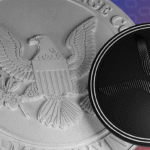Saudi Awwal Bank (SAB) has forged a strategic partnership with Chainlink aimed at enhancing its digital transformation agenda and pioneering advancements in the banking sector. This collaboration introduces Chainlink’s Cross-Chain Interoperability Protocol (CCIP) and Chainlink Runtime Environment (CRE) to Saudi Arabia, marking a substantial move towards the future of on-chain financial services.
The CCIP is designed to enable secure cross-chain transfers of both assets and data, bridging the gap between decentralized applications and traditional financial platforms. This integration paves the way for the effortless incorporation of tokenized assets, programmable contracts, and instantaneous settlement mechanisms—revolutionizing the current banking landscape.
Moreover, the CRE offers SAB a robust platform tailored for developers to test, construct, and deploy cutting-edge banking tools with assured reliability and security. In a statement shared via a tweet, SAB emphasized that this partnership represents a significant milestone in their dedication to fostering financial innovation within the Kingdom.
The benefits of these technologies extend to various applications such as automated lending, tokenization of physical assets, and expedited cross-border payments. Tokenization can significantly enhance the efficiency of financial markets, where instruments like stocks, bonds, and real estate can be digitally transformed, thus facilitating safer transactions. Additionally, smart contracts could streamline the processes surrounding loans and insurance contracts by minimizing paperwork and operational delays.
With over $100 billion in total assets, Saudi Awwal Bank stands as one of the largest banks in Saudi Arabia, actively utilizing several Chainlink services to deploy innovative on-chain applications.
The partnership aligns with Saudi Arabia’s ambitious Vision 2030 initiative, which aims to transform financial services through innovative advancements. Recently, Crown Prince Mohammed bin Salman highlighted the Kingdom’s strategic plan to elevate the Public Investment Fund into the world’s largest sovereign wealth fund, recognizing Saudi Arabia’s substantial investment potential to invigorate its economy and diversify revenue streams.
Early phases of SAB and Chainlink’s collaboration will involve pilot projects to assess blockchain’s effectiveness in live banking situations. These initial trials will incorporate cybersecurity measures, adhere to regulatory frameworks, and provide customer education. Chainlink’s built-in security standards and compliance protocols play a vital role in SAB’s commitment to developing solutions that align with both national and international best practices.
In line with these aspirations, Saudi Arabia has also initiated significant investments, including nearly 40 U.S. venture capital firms focusing on cryptocurrency, blockchain, and Web3 initiatives. The Public Investment Fund’s investment arm, Sanabil, plays a pivotal role in this approach, committing around $2 billion annually to support innovative business endeavors.
This strategic move further solidifies SAB’s longstanding engagement with blockchain technology. Earlier in the year, the bank made headlines by executing the world’s first Islamic Repo transaction using blockchain technology, working in conjunction with Oumla, a local blockchain infrastructure provider. This initiative adhered to Islamic finance regulations while harnessing blockchain to enhance transaction speed, transparency, and security. Additionally, SAB hosted a virtual assets summit to showcase its ambitions and opportunities within tokenized finance.
Beyond SAB, the blockchain movement in Saudi Arabia is gaining momentum. Oumla has partnered with Avalanche to establish the country’s inaugural Layer 1 blockchain, fully hosted within the Kingdom, aimed at supporting startups and small businesses and bolstering technological advancement in the growing regional Web3 ecosystem. Following these developments, Chainlink’s market performance has reflected its rising influence, with a recent increase of 3.36%, trading at $23.40.







